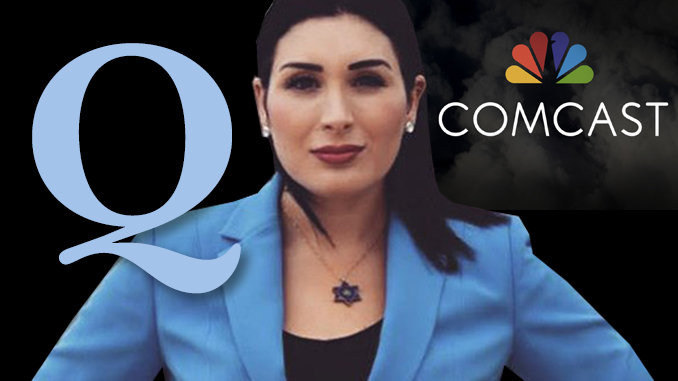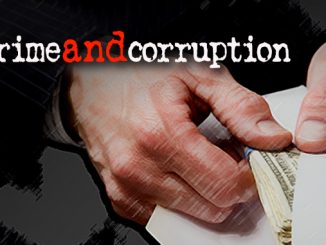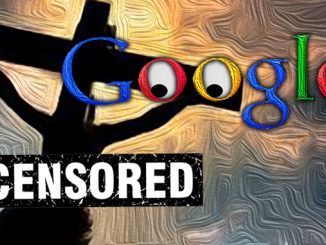
By S.T. Patrick
Florida House hopeful Laura Loomer says Comcast intentionally blocked her campaign’s text messages while Comcast blames her third-party texting app for the “mix-up.”
As the use of social media expands and its propaganda value becomes more important, what is known as “the Facebook question” now applies to a variety of billion-dollar companies that make up the backbone of online communication. It is an issue at the heart of the battle between Laura Loomer, a Republican candidate in Florida’s U.S. House District 21, and Comcast. Loomer says Comcast intentionally blocked her campaign’s text messages while Comcast blames her third-party texting app for the foul-up. But it would not be surprising if Loomer was censored. If that is true, what exactly would that mean?
Facebook has famously waffled between calling itself a platform and calling itself a publisher. This is an important legal question. If Facebook is a platform, then it is akin to the telephone company. It cannot make editorial decisions about what content moves across its platform, and it cannot be held liable for wrongs (legal or moral) that occur on the platform. A caller can say anything they want to say over a Verizon phone line and Verizon cannot be held legally responsible. If Facebook is a publisher, it can make editorial decisions such as banning accounts for speech it deems undesirable since it can also be held liable for the speech that it allows. Comcast is clearly wanting to maintain its status as a platform, thus blaming the Loomer error on the third-party chat app and not on an ideological decision made by the corporate hierarchy in politically explosive times. That argument may be sensible; that is, if the victim of the glitch wasn’t the controversial Loomer.
Loomer’s text to supporters was rejected by Comcast’s Xfinity for containing “dangerous content.” In the text, Loomer announced that she had received endorsements from Roger Stone and Rep. Matt Gaetz. Comcast said the text was stopped by its automated threat-assessment software. It would have stopped any messages coming from the third-party app Loomer’s campaign uses, according to Comcast. But Loomer disagrees.
“There is no reason I should be shut down,” Loomer said. “This is the primary way we get messages out, via text messages and email. . . . [T]hey are now shutting down every way of communicating.”
Loomer’s rise began at Project Veritas where she, with founder James O’Keefe, used undercover videos to expose unethical practices within left-leaning organizations. A self-described nationalist, Loomer has even had her press credentials pulled from the 2019 Conservative Political Action Conference (CPAC). Loomer’s list of bans is formidable: Twitter, Facebook, Instagram, Medium, GoFundMe, Venmo, MGM resorts, PayPal, Lyft, and Uber, among others. She has also been called a conspiracy theorist on a number of occasions. Loomer has said that the Parkland school shooting was staged, that the Las Vegas shooter was ISIS, and that crisis actors have been used at a number of mass shootings. She insists (as do many other less controversial figures) that Ilhan Omar married her own brother in order to get him papers so he could stay in the United States. One of her favorite topics is “Q” or “QAnon,” the theory—accepted as fact by tens of thousands of Americans—that there are high-level people inside the Donald Trump administration who are working to counter the nefarious goals of the so-called Deep State.
Democrats scoff at the idea of a Deep State actually existing while President Trump has used the term on numerous occasions in his press briefings and text messages. It must be remembered that many Democrats also deny the very existence of Antifa, even as cadres of these anarcho-communists try to burn Portland, Ore., for instance, to the ground.
Loomer has also been ejected from public events, such as a Chelsea Clinton book signing where she asked Clinton to sign a book for Juanita Broaddrick, one of the women who has accused Bill Clinton of rape. In January 2019, Loomer convinced a group of Hispanic men she met at Home Depot to jump the fence at Nancy Pelosi’s estate to set up a tent on the lawn to protest Pelosi’s stance on illegal immigration.
Loomer faced five other Republicans in the primaries and won with 42% of the vote. She will face incumbent Democrat Lois Frankel for the U.S. House seat covering the West Palm Beach region of Florida. Loomer has a chance. She is the queen of controversy and, like Trump, the more the Democrats wield insults, the stronger the fearless Republican politicians become in the minds of the GOP’s voters. If “the most banned woman on the internet,” as Loomer calls herself, can win, she will be a public voice that will appeal to Trump supporters, regardless of the presidential election outcome.
The macro question at hand concerns the ability of corporations to censor content. Politicians can only do so much. A bulk of today’s most important free speech exercises are held on social media. Mobile apps are the new concrete podium in the public square. Unfortunately for free speech absolutists, Facebook, Twitter, and YouTube have shown a propensity to censor. If the citizens en masse can be moved from technology to technology over decades, becoming more dependent upon each, then the controllers (or publishers) of those platforms have an increasing amount of power to control speech. When that happens, free speech is just a faded memory of liberties gone by. If Comcast did censor Loomer, everyone loses, not just Republicans. It proves that everyone’s free speech is at the mercy of apparently all-powerful Big Tech companies.
S.T. Patrick holds degrees in both journalism and social studies education. He spent 10 years as an educator and now hosts the “Midnight Writer News Show.” His email is [email protected]. He is also an occasional contributor to TBR history magazine and the current managing editor of Deep Truth Journal (DTJ), a new conspiracy-focused publication available from the AFP Online Store.






